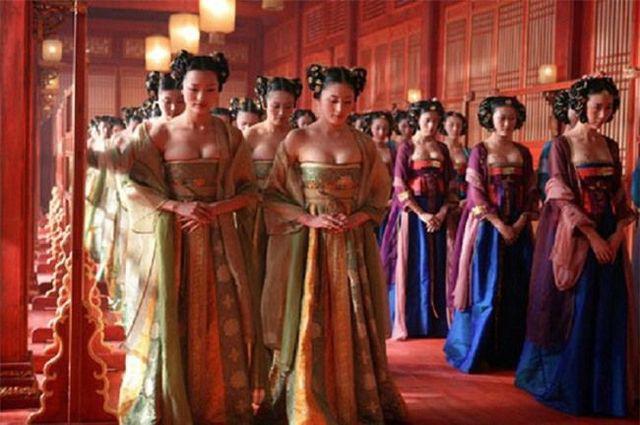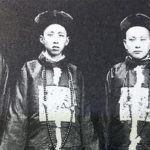Due to their low status and restricted freedom of movement, the desires of palace maids were often unfulfilled. In particular, they had no freedom in love, exploration, or marriage while serving in the palace. However, ancient palace maids had their own ways of satisfying their sexual needs.
How did ancient palace maids satisfy their sexual needs?
In feudal society, the actions of palace maids were strictly limited. They could only rely on and communicate with other palace maids to meet their living and emotional needs. Over time, many palace maids formed close relationships with each other. It can be said that these relationships were their only support and comfort. In this competitive and tense environment, the emotional bond they had with each other became the motivation for them to overcome difficulties, and some palace maids began to engage in “real acts”.
“Real acts” were quite common in ancient imperial courts, but it was a choice made by powerless palace maids. “Real acts” originated from the Han dynasty harem and referred to sexual relationships between palace maids. During the reign of Emperor Wu of Han, this phrase was used to describe the relationship between Empress Tran and her palace maids.

Some palace maids began engaging in “real acts” to satisfy their sexual needs
Empress Tran was beautiful, charming, and extremely intelligent, gaining the favor of the emperor. She not only had exceptional beauty but also held a very high position in the palace due to her intelligence. It is said that even the policies implemented by Emperor Wu of Han had to be approved by Empress Tran, showing her power in the palace.
Empress Tran had a group of extremely loyal palace maids. According to legend, at midnight, when other palace maids were sound asleep, Empress Tran would visit the chambers of her beloved attendants. They would close the doors, draw the curtains, light a dim candle, and two beautiful figures would embrace each other in the faint candlelight. After maintaining this relationship for a period of time, the news finally reached the ears of Emperor Wu. The emperor was extremely angry, declaring the empress morally corrupt, ultimately stripping her of power and demoting her to a commoner.
In the Qing dynasty, the practice of “real acts” was strictly prohibited. Palace maids would face cruel punishments if caught engaging in “real acts” with each other.
Originally, “real acts” referred to homosexual relationships between palace maids, but later it was also used to describe relationships between court officials and palace maids. It was recorded as the worst way to satisfy one’s desires. Since eunuchs couldn’t have heirs, palace maids couldn’t find suitable husbands. In the palace, they relied on each other and easily survived.
Palace maids and eunuchs usually had brief encounters. But during the Ming dynasty, Chu Yuanchang detested this behavior. If eunuchs or palace maids were discovered to have engaged in “real acts”, they would be tortured, and even brutally executed by being skinned alive. In the reign of Emperor Wen of Ming, as the position of eunuchs became prominent, the emperor turned a blind eye to this issue.
Palace maids accept a lonely life after leaving the palace

Palace maids accept a lonely life after leaving the palace
Since ancient times, the court selected young girls aged 13-14 into the palace through various tests. When they reached around 25-30 years old, they would leave the palace. This age was already considered too old because people in ancient times got married and had children when they were around 15 years old. Therefore, when palace maids left the palace, it was difficult for them to find unmarried men. They only had two choices: becoming the concubine of someone else or remaining unmarried.
Having become accustomed to the intrigues of the palace, these women always felt that life was precarious, as if walking on thin ice. And these psychological burdens followed them after leaving the palace, making their lives more weary.
The arduous work and constant service to their masters deteriorated their physical health, and they would rarely live long and have children. This was also one of the reasons why they had difficulty getting married. Ancient China attached great importance to continuing the family line, and no man would accept a wife who couldn’t bear children.
Some unfortunate palace maids were forced to become court prostitutes to survive. Most of the palace maids remained lonely for the rest of their lives after leaving the palace. There were also some special cases where concubines actively found good husbands for their palace maids before they left the palace. However, such cases were very rare because concubines didn’t even have enough time to calculate for themselves, let alone plan for others.


































